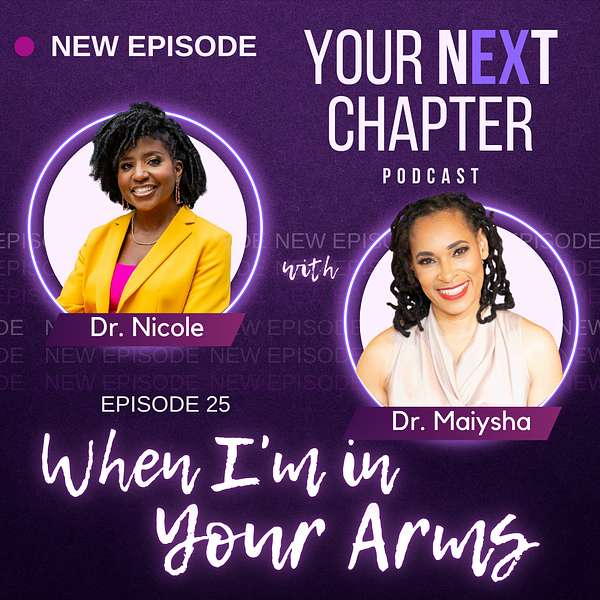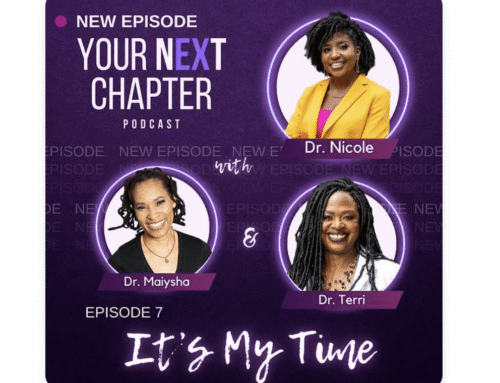
Introduction: Why Emotional Safety Matters More Than Ever
In today’s fast-paced, high-pressure world, relationships are meant to be safe havens, places where we can show up fully as ourselves. However, for many people, especially those with histories of trauma or emotional neglect, relationships can feel anything but safe. As a result, what should be a source of comfort often becomes a space of anxiety or emotional disconnection. In this episode of Behind Beliefs, Behaviors and the Brain, Dr. Maiysha Clairborne sits down with Dr. Nicole Rochester to unpack the concept of psychological safety in relationships, why it matters, and how it shows up in our communication, behavior, and healing.
What Is Psychological Safety in Relationships?
We often associate psychological safety with the workplace, team environments where people feel safe to speak up. But in intimate relationships, it’s just as critical. Dr. Maiysha defines psychological safety as the experience of being able to:
-
Express your truth without fear of punishment or ridicule
-
Set boundaries without emotional backlash
-
Be vulnerable without being shut down
-
Make mistakes without being made to feel inadequate
Whether you’re navigating marriage, dating, or even friendships, the lack or presence of psychological safety sets the tone for how deep, honest, and secure your connections can be.

How Early Experiences Shape Our Relationship Safety
Dr. Maiysha vulnerably shares how growing up in an emotionally unsafe home; where silence, criticism, and unresolved conflict were the norm, created patterns she had to unlearn. As children, many of us were punished or silenced for speaking up, especially when it made others uncomfortable.
This creates a cycle of internalized beliefs:
-
“If I express myself, I’ll be rejected.”
-
“If I set a boundary, I’ll be abandoned.”
-
“If I speak my truth, I’ll get punished.”
Recognizing and challenging these subconscious beliefs is key to building psychological safety in relationships as adults.
The Four Components of Psychological Safety
Adapted from workplace psychology and applied here to personal connection, Dr. Maiysha breaks down four stages of safety that must exist in any thriving relationship:
1. Inclusion Safety
Do you feel like you belong? Are you accepted as you are without needing to shrink, perform, or explain yourself?
2. Learner Safety
Are you allowed to grow, make mistakes, and not have it held over your head?
3. Contributor Safety
Can you share your ideas, feelings, or truth without being criticized, corrected, or gaslit?
4. Challenger Safety
Can you disagree or challenge your partner’s perspective without being punished emotionally, physically, or psychologically?
These four components help us measure whether our relationship space is safe, or harmful.
Language That Builds or Breaks Safety
How we communicate plays a massive role in emotional safety. Some simple yet powerful communication strategies shared in the episode include:
-
“I love you, and…” (rather than “but”)
-
“I need you to…” instead of vague complaints
-
“I will not tolerate…” to assert boundaries clearly

Equally important is nonverbal communication. Stepping away, pausing a conversation, or even choosing silence can speak volumes when a situation feels unsafe. Your nervous system knows, listen to it.
Your Body Is the First Messenger
Dr. Nicole and Dr. Maiysha remind us that the body never lies. Many of us have learned to ignore our gut instincts and nervous system cues. But when you feel tension, dread, anxiety, or withdrawal in a relationship, it’s often your body alerting you that psychological safety in the relationship is missing.
Rather than override it, they recommend asking:
-
“What am I feeling in my body right now?”
-
“Is this fear mine, or is it familiar from the past?”
-
“What boundary might I need to feel safer right now?”
Conclusion: You Deserve Safe, Supportive Relationships
True intimacy isn’t just about physical connection or saying “I love you.” It’s about being able to bring your whole self into a relationship, without fear. Psychological safety in relationships allows love to thrive, communication to deepen, and healing to take place.
If you’re noticing a lack of emotional safety in your relationships, you’re not alone, and it’s not too late to change the pattern. As Dr. Maiysha says: “You don’t need someone’s permission to speak your truth, and you don’t need to justify why you feel unsafe. If it doesn’t feel safe, it isn’t.”
Let this be your invitation to listen to your body, honor your needs, and prioritize the spaces where you feel heard, respected, and valued.
Follow Dr. Maiysha on Social media
Facebook: www.facebook.com/DrMaiysha
Instagram: www.instagram.com/DrMaiysha
Youtube: www.YouTube.com/DrMaiysha
Communication is the foundation of everything and everything happens in communication. If you’re ready to take your communication to the next level, our Communication That Transforms course dives deep into creating psychological safety, handling crucial conversations, navigating conflict, and cultivating trust in a way that truly leaves the people in your life feeling seen, heard, respected and valued. It will transform how you lead and how you show up in all of your relationships . Learn more and register at www.mindremappingacademy.com/ticc. If you are a leader and your employees or teams are struggling with team dynamics, consider taking them through our new “Communications That Transforms” group cohort.
See the full course breakdown and get a free preview of key modules to experience the value. Go to https://mindremappingacademy.com/course-catalogue and schedule a call with Dr. Clairborne at www.mindremappingacademy.com/corporate-programs
About The Host
Dr. Nicole is a pediatrician, the owner of a successful healthcare consulting company, a riveting keynote and TEDx speaker, and the mom of two beautiful young adult daughters. Dr. Nicole is committed to creating a safe space where other women who have experienced a “divine disruption” can heal, recover, and THRIVE!
Connect with Dr. Nicole:
Web: https://yournextchapter.co
IG: https://www.instagram.com/yournextchapter_co
FB:https://www.facebook.com/yournextchapter.co
Email: hello@yournextchapter.co








